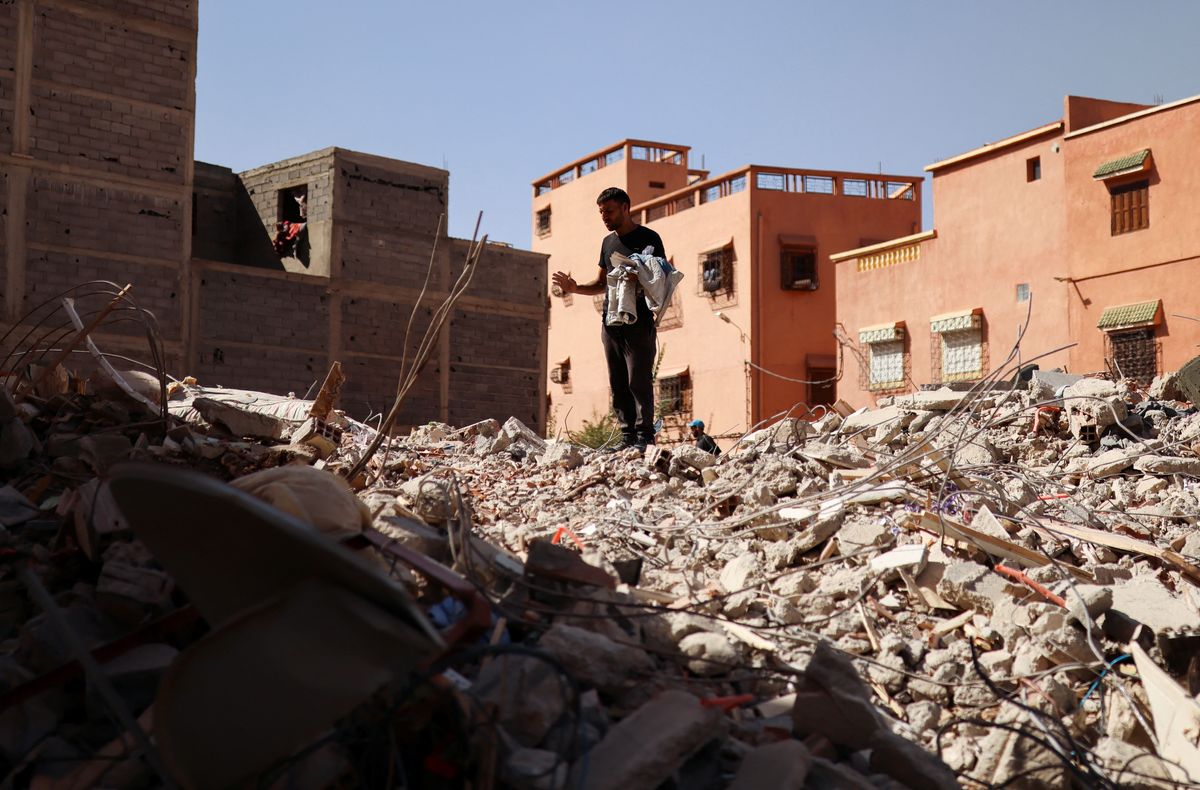The Morocco earthquake and its aftermath
Late Friday, Morocco was rocked by an earthquake measuring 6.8 on the Richter scale.

A few minutes every morning is all you need.
Stay up to date on the world's Headlines and Human Stories. It's fun, it's factual, it's fluff-free.
The backstory: Late Friday, Morocco was rocked by an earthquake measuring 6.8 on the Richter scale. This event near the scenic town of Oukaïmedene in the High Atlas mountains, about 75 kilometers southeast of Marrakech, became the epicenter of a devastating catastrophe. This was the deadliest earthquake in Morocco since 1960, when a similar tragedy claimed the lives of at least 12,000 people.
The official death toll quickly passed 2,000, with an additional over 2,400 people injured. Heart-wrenching images flooded social media, revealing buildings reduced to rubble. Even the iconic red walls surrounding Marrakech's historic city, a UNESCO World Heritage site, suffered damage, along with multiple hotels and crucial infrastructure.
More recently: Adding to the complexity, Marrakech had significant plans on the horizon. It was gearing up to host the annual meetings of the World Bank and International Monetary Fund in mid-October. This was a historic moment as it marked the first time these gatherings were being held in Africa in half a century. But the earthquake cast a shadow of uncertainty over the event's fate.
On top of that, many people found themselves spending the nights outside under the open sky for fear of more aftershocks and unstable buildings. Rescuers were searching for victims and survivors in the rubble, and the death toll is expected to rise. But some of the hardest-hit villages in the mountains have challenging terrain, making them difficult to reach.
The development: In the wake of this disaster, King Mohammed VI declared a three-day national mourning period as Morocco coped with the aftermath of the devastation. Despite his absence during the disaster, the king called on citizens and local businesses to contribute to recovery efforts, emphasizing the significant human and material losses suffered across the nation.
On the global stage, world leaders, including US President Joe Biden, French President Emmanuel Macron and Ukrainian President Volodymyr Zelenskiy, extended their condolences and offered assistance. President Recep Tayyip Erdogan of Turkey, which experienced a massive earthquake earlier this year, joined this global support. The king also thanked Spain, Qatar, the UK and the UAE for sending aid, according to a state broadcaster on Sunday.
But relief efforts faced huge challenges. For example, blocked roads, congested routes to the quake's epicenter and disrupted power supplies are hindering first responders' efforts.
Key comments:
"We know there is a great urgency to save people and dig under the remains of buildings," said Arnaud Fraisse, founder of Rescuers Without Borders, who had a team stuck in Paris waiting for the green light from Morocco to help assist in rescue efforts. "There are people dying under the rubble and we cannot do anything to save them."
"I barely got the chance to grab the kids and run out before I saw my house collapsing in front of my eyes. The neighbor's house has also collapsed, and there are two dead people under the rubble," said Fatima, a witness of the earthquake to CNN.
"The problem is that where destructive earthquakes are rare, buildings are simply not constructed robustly enough to cope with strong ground shaking; so many collapse, resulting in high casualties," said Bill McGuire, professor emeritus of geophysical and climate hazards at University College London.
To help with rescue and relief efforts in Morocco, check some of the following organizations:
The International Federation of Red Cross and Red Crescent Societies




Comments ()